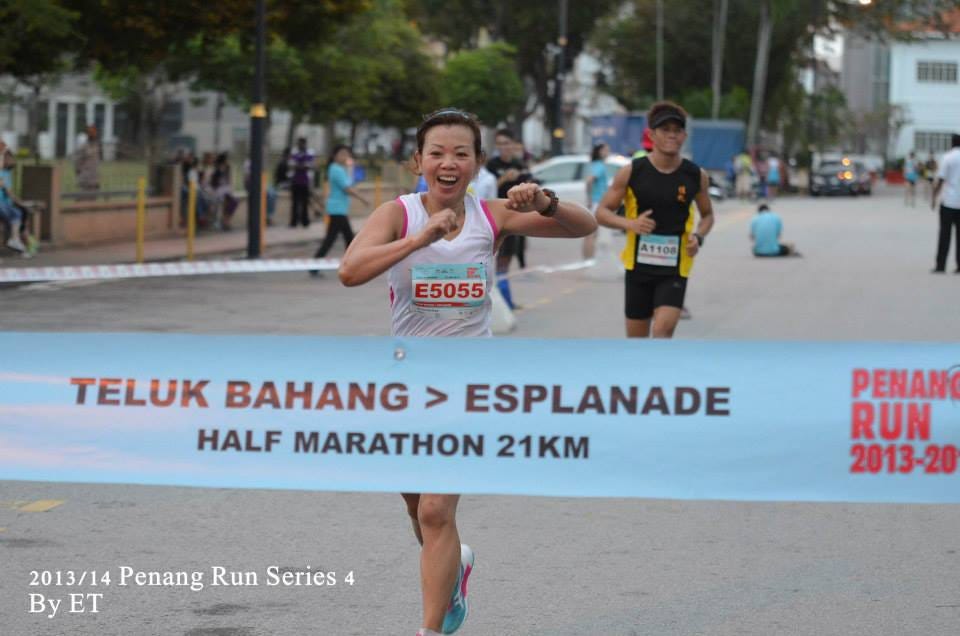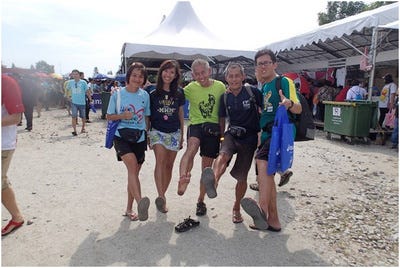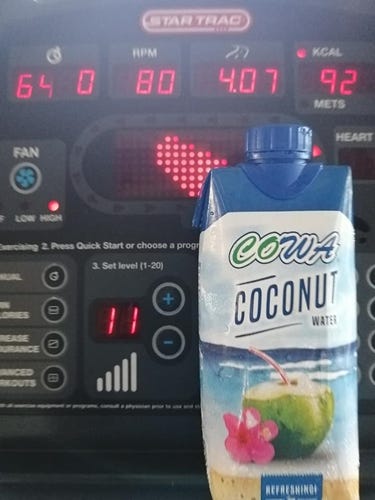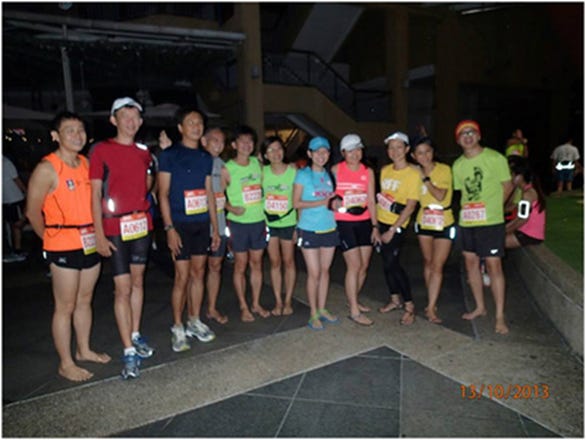The New Rules of Running for the Over 50s
Many of the over 50s runners are some of the most passionate about their dedication to running
One of my writing collaborations with Maggie Kim Hong Goh
With such a large group of over 50s runners in the world today, there is a need to take a new look at some of the basic rules of running that have been conventional wisdom behind the sport for so many years.
It's time now to overturn the conventional thinking that has always supported running with new ideas that suit the changing demographics of runners today.
Here are some challenges to the basic assumptions, and new assumptions that specifically the over 50s runner.
1. The Basic Assumption of About Competition
The first new rule of running concerns the definition of competition. In traditional athletics, be it school or club, the emphasis was on winning. However, running motivations of the over 50s are very different and mixed up between desires for better health, comradely, and a hobby or lifestyle that has some challenge about it.
This is where the concept of competition has been redefined for the over 50er. Running is about achieving something meaningful in life. So, the concept of competition is related inwards towards the self, rather than outwards towards beating others. Therefore, many have a desire to complete a marathon, or complete a number of marathons, or even participate in ultra-marathons.
The competitive aspect here is competing against 'one's self' to achieve the particular goals that the individual has set for him or herself.
So, you will hear around running circles that the talk is about completing this or that event in this or that time. Some will extend this to coming a certain place, i.e., first 1,000, first 100, or first 10, etc. But generally, competition is goal rather than people orientated for the over 50s runner.
So, when you watch age group runners in a marathon, its fiercely competitive. However, the competitive spirit is about being able to run the event and complete it well, rather than win it. And this is why you will see the post-race pictures on FB where it looks like everybody has won.
Competition for the over 50er is an outwardly shared experience, rather than the inwardly individual experience of the elite athletes.
2. Run More Marathons than Ever Before
The new assumption about competition changes one of the cardinal rules of distance running. Elite athletes were always taught to select one, two, or maximum three marathons a year to run. It was believed that the body needs time to recover in order for an athlete to come at their very best.
However, the over 50s runner may see that participation on an event is what is all important. The select running of marathons is overturned with the presumption of 'why not?'
What is important to most over 50 runners is being at the event, meeting up with old friends, making new friends, and sharing the 'competitive experience' of finishing the race within their time objectives, if possible as well.
This is where disappointment is minimized. If an over 50 runner fails to achieve a time objective, there is always next time, which isn't usually too far away. Maybe just a matter of a few weeks, or even a week.
Unlike many younger runners, many 50s runners just don't stop after the achievement of running a marathon. They tend to keep going, as the experience was usually positive for them. A coming marathon at such and such a particular place becomes an marked future calendar event that is looked forward to as a goal to be ready for.
3. New Assumptions About Training
As we age, our ability to train intensively declines. Our body physiology is different to younger people. This is due to a loss of our muscle mass and the loss of moisture from our tendons. If we put our bodies through intensive, we will be prone to injury.
Training puts the body under great stress, and at 50 plus much more rest and recovery is needed for the body to repair the damaged micro-tissues that undergo wear and tear during training.
For the over 50s runner this means a number of things. The first issue here is that training has a point of diminishing returns, and that runners must find the optimum level they should train at. This will certainly not be at the level of a 20 or even 30 year old runner.
Thus the accepted seven day training cycle is not totally suitable for the over 50s runner, as more recovery/rest days are needed to be spaced in between intensive sessions. The best cycle for an over 50s runner maybe 10 or even 12 day cycles, where for example there are extra days for recovery runs during the week.
Rest is an essential aspect of recovery, and an important factor for improving performance. Rest, just like the long run, or interval session, is an important part of the training regime, that plays a major role in enhancing performance. During the rest periods, the body repairs itself and actually builds strength in our legs. Overtraining occurs when the body doesn't have time to repair itself. Many have ignored this at their peril. This is the greatest cause of injury to runners.
Tim Noakes analyzed the training regimes and careers of many elite runners and found that most, if not all of them, overtrained. So, if we take up this lesson, training schedules need not be so rigorous as most runners conventionally believe. In fact, ease up and train less, and one may perform better.
This could be an important factor in why many over 50s runners can run multiple marathons each year without major injury. They in fact do little training between marathons.
It's not the person who trains hardest who runs well. It is the runner who trains smartest who runs well.
When the motivations of over 50s runners are considered along with the above, then training schedules should reflect these objectives. There must be a strong element of give and take, flexibility to train according to how you feel, rather than any set schedule.
Training for the over 50s must be a very intuitive activity where you listen to your body, rather than your will. The best training schedule is a very loose one, where over a period of 10 to 12 days you get in the elements of endurance, pace, speed, and fitness, through the various sessions you do. Don't feel guilty by putting a session off for a day and just going out for a light 'happy' run without any GPS or stopwatch. The next day you will be much fresher and better absorb that intensive session you planned.
4. Diet is Important
Diet is of paramount importance to the over 50s runner. This is one of the major discussion points between over 50s.
At 50+ nutrition is much more important than for those within the 15-25 year old age categories.
The extra stress of training with a body that is slowly degenerating through age requires the nutrition to handle declining VO2 max, reduced strength, increased body fat, reduced lactic acid processing by the muscles, and declining bone density.
It is not just about what you eat, but when you eat in relation to both training and racing.
It is of vital importance to eat correctly each day so that the body can repair itself. At 50+, this means getting rid of processed foods, and getting onto natural foods as much as possible. This maybe a major lifestyle change, as 'pigging out' at Makka's is dropped as a social activity.
It's also not just about what you eat but where you socialize, which brings in massive lifestyle change.
On a daily basis, 15-25 grams of carbohydrates are needed before a morning or evening running session to sustain energy levels (really important for the over 50s). This is especially important during the morning, as the blood sugars are turned into glycogen, which is needed late in any long run or sustained training session.
What is just as important is eating a balanced diet of complex carbs, proteins, etc.
Eating after a workout is just as important to supply sustenance to help repair the body, and build muscles. Carbs restore the energy you have burned up during your run.
Good eating straight after a run helps you recover faster.
It's also important for the over 50 to eat and replenish vital electrolytes during a run. For example, sodium is considered a 'no no' for an average over 50s person due the adverse health effect to a non-active person. But for the active person, sodium is needed to help replenish the salts that are lost through sweating. This is counter-intuitive to general medical advice give to people.
5. We have Entered the Age of Cross-Training
Running alone is a very strenuous activity for anybody, let alone the over 50s. Therefore cross-training has become something of vital importance today. Good aerobic fitness can also be gained from activities such as cycling and swimming etc. These activities take great stress of the legs and go a long way to preventing injuries and actually complement running. Many anaerobic activities such as yoga and gym work can build vital strength needed to help people run pain free.
Running for the over 50s has created get new avenues for innovation in cross-training techniques and methods, which actually help build strength and endurance.
6. Age category Running is the Domain of Newbies
Finally, one must wonder why age category winners aren't the champions of yesteryear. If one goes through race results all around the world, what stands out is that the elite athletes of the past are missing from the results.
Tim Noakes referring to Bill Rogers attempts to break world age records for the marathon suggests that the wear and tear from many years of training takes its toll on elite athletes and thus the champions of age categories are most likely to be people who have more recently taken up running.
Thus, age category running will not be dominated by the champions of the past, but rather each few years a bunch of new names will come to the fore within the age categories.
The above rules rewrite traditional ideas of running and accept that demographics had radically changed over the last two decades, where the over 50s runner is one of the major running groups today. The over 50s demographic is growing and needs to be taken account of more by the 'running establishment' around the world.
If we adhere to the 'new rules of running, No. 7., would be that 'many of the over 50s runners are some of the most passionate about their dedication to running'.
Originally published on OVI Magazine 6st December 2014
You can subscribe for free emails of future articles here:









I have just completed my 100th Marathon since turning 70, 231 overall